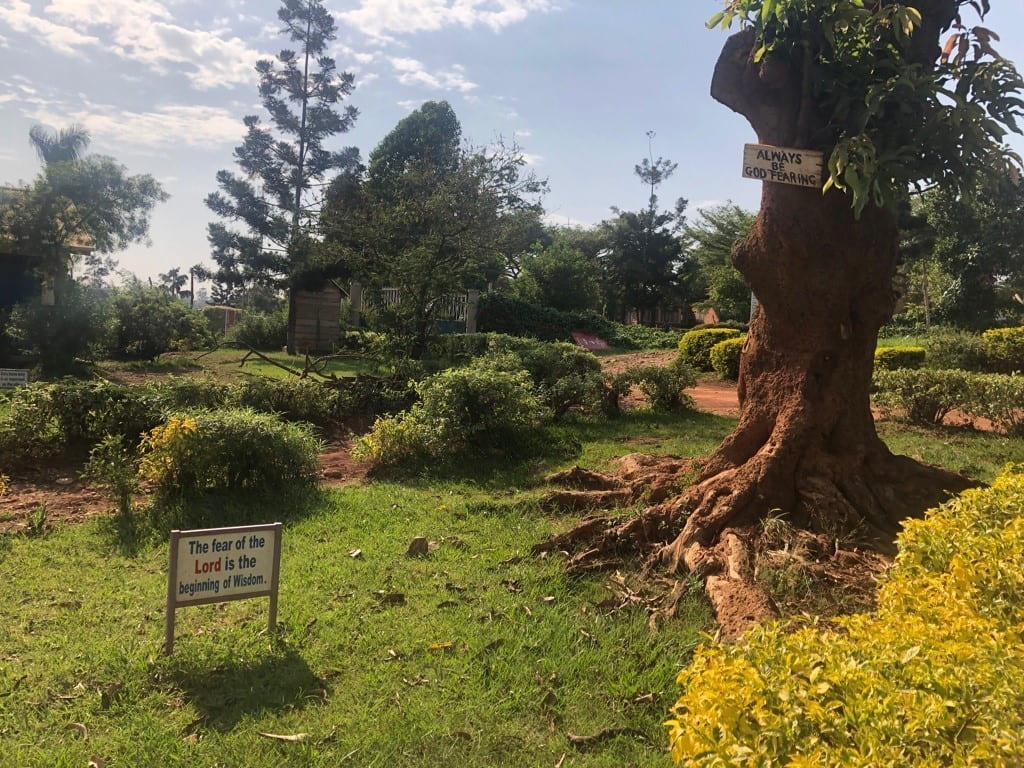“The good news of it”: religion & mobile phones
By charlotte.hawkins.17, on 11 December 2019
This blog post draws on four interviews about phone use in Lusozi (my field site in Uganda), specifically where people discuss using them for religious purposes. The instances that follow show that the phone is sometimes incorporated in moral discourses with reference to religious beliefs; specifically, the individuals cited here expressed concerns around younger people’s phone use and their excessive messaging, categorised as ‘bad’ and improper, whereas preaching or sharing religious knowledge via the phone is considered ‘good’. Aspirations to own a smartphone have also been expressed in relation to faith.
Global media, the internet and its influence is sometimes described as ‘dotcom’, younger people today as ‘the dotcom generation’ or ‘the children of dotcom’. Often it is said by older people who are referring broadly to modern developments. Papa, who is Born Again, described dotcom as “like the New Testament, something recent…modern, jumping from the old to the new”. He thinks it can be used in both positive and negative ways, “it helps when you use it well…it even helps us to preach the gospel to people on WhatsApp”. He has an app with the bible on his phone, taking passages from there to forward to his contacts. But he says that he uses his smartphone mostly for Facebook, to keep in touch with people at home in DRC (Democratic Republic of the Congo) and see their pictures. He also listens to preaching on the radio through his phone, specifically on ‘Voice of America’, and to hear about the news in Israel: “You know it is better to know about is Israel because we are in the end time. If anything happens there, you get it in the prophecy of the bible, the way we are walking”.
A Born Again pastor similarly described the good and bad ways of using the phone in religious terms. He is concerned about young people’s use of messaging, particularly when they are supposed to be concentrating on something else, but he is glad that it offers another platform to preach, describing this as the “proper” way to use a phone; “we appreciate the good news of it”.
Assistants to the Imam in the primary mosque in Lusozi agree that phones can be used in ways both supportive and detrimental to religion, depending how someone chooses to use them:
Nowadays, people have these phones, but phones nowadays would not be bad in our religion. Because you can be connected to somebody, somebody might ask you for a verse, or ask you any question. Now the problem which we have in our religion, other people… use it in a bad way, there is the problem…when you are back biting someone, it is very bad.
Imams use their personal phones to share their knowledge of their religion via Facebook, and when people call them for advice. If they don’t know the answer, they use either google, their Qu’ran app, or a book called Hismul Muslim to find out or to ask others with knowledge. These apps also help them with their daily recitation, providing the text, as well as translating Arabic texts to English.
Not all participants in Lusozi own their own smartphone or mobile phone. Often, they are shared within families. Aleng, one of my research participants, is hoping for a smartphone of her own, and she hopes to learn how to use the internet. Her pastor often posts on social media, so she wants to connect with that. In the meantime, she mostly uses her phone for calling, typically contacting ministry to find out if there’s anything she can help with or participate in. Recently she called because she wanted to send her seeds to the Church to be anointed before planting them: “you anoint when you want God to quicken something”. Her daughter has a smartphone, and she sometimes relays messages back from the family WhatsApp group, but otherwise she feels everything is within her reach. “My God is a miracle God; he will give me a smartphone at any time”. She feels that dotcom is God-given, “these things come, you know God is the offerer of wisdom. If God has allowed such thing to come, it has the negative part of it and the positive part, so it depends on someone using it”. She is glad that it can be used for gospel.

Signs in a primary school in Lusozi; ‘Always be God Fearing’, ‘The fear of the Lord is the beginning of Wisdom’. Photo by Charlotte Hawkins (CCBY)
 Close
Close





